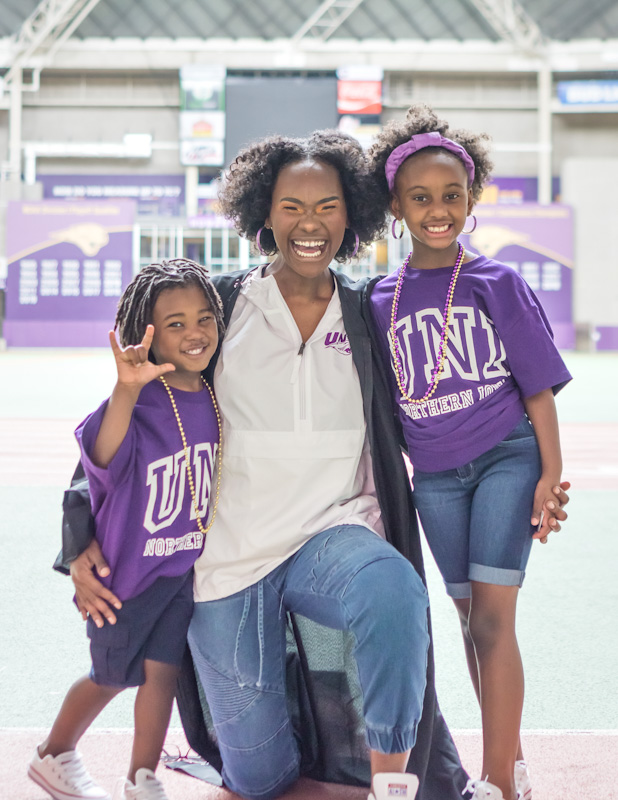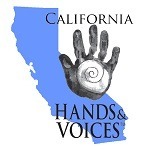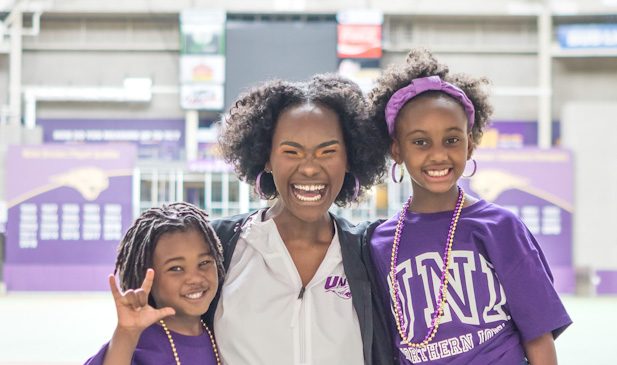I self-identify as….
Deaf (with a big D)
What do you enjoy doing in your free time?
Love “signing” to songs, going for walks, visiting beaches, writing poems
Please tell us about your earliest years of life related to your hearing, identification etc.
I was diagnosed with hearing loss at the age of 7. I identified as Hard of Hearing. I kept falling asleep in class (listening fatigue). My school’s team decided to test my hearing. I have a bilateral sensorineural hearing loss. I’m bimodal with a hearing aid and hybrid cochlear implant now. There’s no history of hearing loss in my family and I wasn’t sick as a child. I am the only Deaf individual in my family.
 Please share about your relationship with your family and inclusion tips that you have found helpful.
Please share about your relationship with your family and inclusion tips that you have found helpful.
I would suggest close and extended family members to learn American Sign Language. Deaf culture and language is imperative to acknowledge. It wasn’t until I accepted my Deafness that I realize how important ASL was and how it would greatly impact my life. When I am around people who attempts to “sign”, I feel embraced by the culture and their desire to be inclusive.
Please share a little about your education placement & extracurricular activities as a youth.
I recently graduated with a BA in Public Health:Women’s Health from the University of Northern Iowa. I’m furthering my education by aspiring to be a midwife for Deaf women. I plan to own my own practice one day. I attended mainstreamed schools throughout my educational journey. As a child, AEA provided me speech therapy until high school. At home, my family focused on perfecting my articulation through slam poetry. I was involved in Dance Team throughout high school. I was always challenged to rise above my hearing abilities.
Please tell us about your relationships with DHH peers as a youth and how they impacted your life.
I didn’t know any other Deaf Black Women while growing up. The one friend I knew who wore hearing aids, did not sign. Two years ago, I visited Jamaica to learn Jamaican Sign Language and fellowship with others who looks like me. It was a life changing experience to be welcomed in an all Black and Deaf environment. The people I met had instantly became my family. I now connect other hearing moms with Deaf children to support groups and resources that echoes safe spaces. Together, we share our successes and challenges, judgment-free. Our support groups have been an essential factor to my identity and growth.
Please share how you/your parents prepared for a new school year and any Tips for Teachers that worked for you.
I love TypeWell/CART services! Live transcriptions are one of the best things linking technology with accommodations. I didn’t realize how much I was missing during lectures and conversations until I was able to see it with my own eyes. This is a game changer. However, teaching requires inclusive mindsets. There is no “one size that fits all.” Which means it’s essential for educators to connect, remain creative and learn their students preferred mode of communication.
Can you tell us a little about your college experience and how did you prepare for college? Any tips?
I was not prepared for college as much as I could have been. I was a participant in the Classic Upward Bound Program, where I gain skills that allowed me to persevere. However, I didn’t understand the importance of utilizing Student Accessibility Services. It wasn’t until I started receiving accommodations that my grades started to reflect full access. I faced many challenges in college. My senior year, an instructor failed to comply with ADA when asked to wear an external mic, per my accommodations. I was moved from the class but was nearly derailed from graduation. The solution required tons of advocacy from hearing allies to ensure my completion. Disability Rights Iowa helped me navigate this process.
Please share a little about your career and any tips for someone considering a similar career?
I am a TOD (Teacher of the Deaf) in Oakland, CA currently. I had never imagined to be a teacher but I am very passionate about educating the youth and bridging the gap between Deaf and hearing communities. This experience will enhance my ability to connect with my future patients as a midwife. I’ve also gained a new level of respect for others in this field because it’s challenging but so worthwhile. I look forward to following up with my students 10-15 years from now.
Please tell us about your relationships with DHH peers as an adult. When meeting a new person what script have you found helpful when telling them that you are DHH?
Yes, I have many Deaf friends as an adult! I can text them venting randomly and immediately they understand my struggles. There are Social Media groups that support Deaf individuals. Prior to COVID-19, Deaf Chats allows you to immerse yourselves within Deaf communities. However, I go where I am celebrated, not where I am tolerated. In spaces that celebrates American Sign Language is where I feel most comfortable.
Most DHH children are born to hearing parents. This question may help parents see the world through their child’s eyes. Please tell us about your day to day life experiences as a DHH adult.
It’s hard! Extremely exhausting! However, I have so much purpose and passion within to keep pressing forward. I’ve met amazing people who supports and encourages me daily. One of my favorite benefits of being Deaf is the ability to remove my devices at the end of the day and feel at peace, within the silence.
What accomplishments are you most proud of in your life?
I’m a proud Deaf mother of two hearing children. I’m so inspired to continue to equip them with ASL. I know that they will continue to move the needle forward because of their experiences with having a Deaf mom. Society says, “Deaf can’t.” I am the epitome of “Deaf can, Deaf did, and Deaf will.” The future possibilities are endless. I am proud to still be standing strong in who I am.
Favorite quote? Final comments?
Therefore no struggle, there is no progress. -Fredrick Douglass
Let’s go out with a bang! Complete this sentence to debunk a misconception about Deaf or Hard of Hearing people. “People may be surprised to know that I…..”
Black, Deaf, Educated, and Woman… But this only validates my purpose even more. Bridge the gap!

